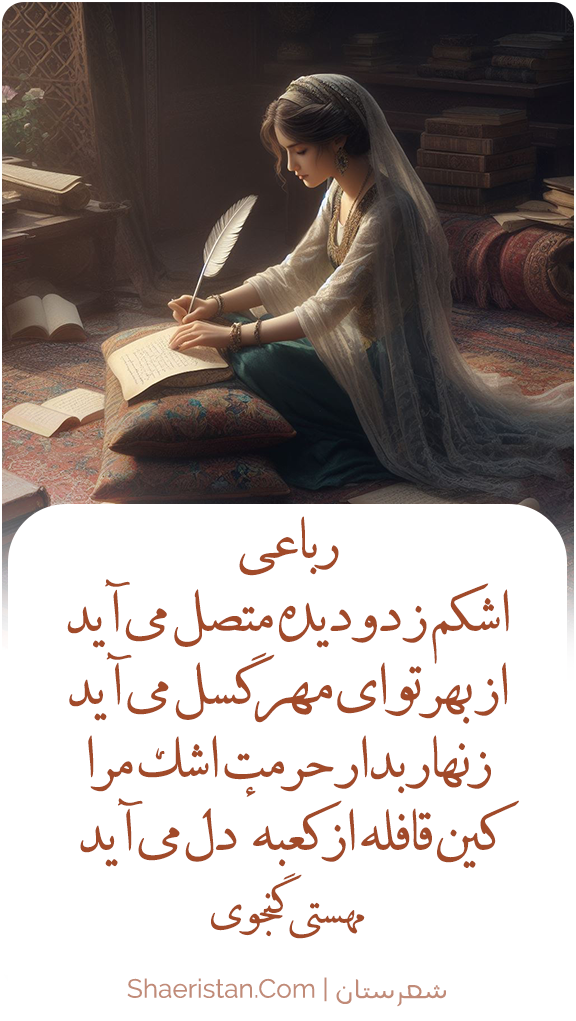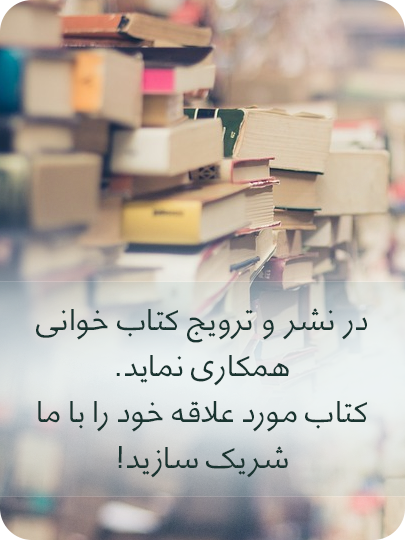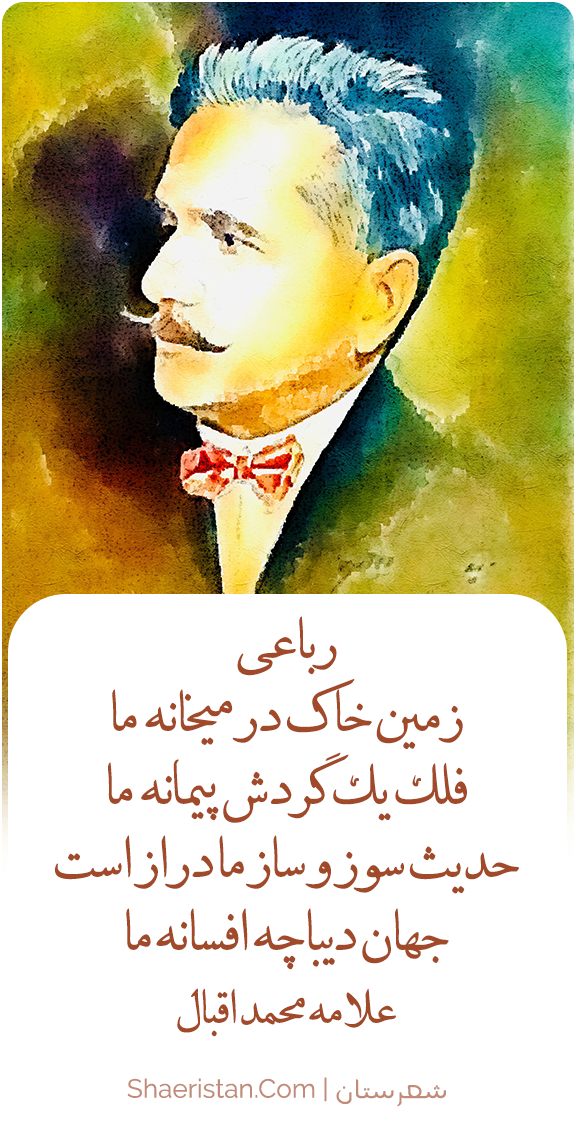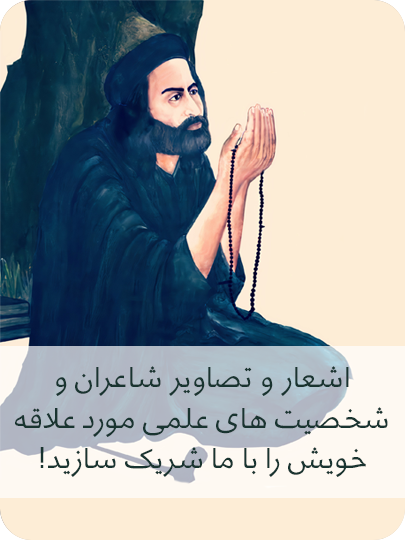Everyone who sets out on a journey has a particular idea in mind: “Once I arrive I will be able to gain advantages and improve my affairs. My business will be set in order, my friends will be delighted, and I shall defeat my enemies.” Such are the ideas we have in mind, but God’s objective is something else. We make so many plans and think through so many ideas, and not one turns out according to our desire. Yet even with all of that, we continue to rely upon our own plans and choices.
Ignoring Fate, people plot their little plans.
God’s Will does not consult with the plans of man.
This is illustrated by the woman who sees in a dream that she has chanced into a strange city where no one knows her, and she knows no one else. She becomes bewildered, and depressed, saying to herself, “Why did I come to this city where I have no friend nor acquaintance to shake me by the hand, or press me on the lip?” On awakening, this city and its people vanish, and she realizes that all her anguish and sorrow were over nothing. So she disregards the state she found herself in, thinking her worries were quite wasted. However, the next time she falls asleep, she sees herself in exactly such a city again, and begins to feel the same sorrow and loneliness. She regrets coming to such a city and doesn’t remember when she was awake how foolish she see it was to worry, since it was only a dream and nothing to grieve about.
This is exactly how people are. They have seen their desires come to nothing a hundred thousand times. Nothing proceeds according to their intricate plans. But God appoints an oblivion to cover their eyes, so they forget all that has happened, and once again they plan out their own ideas and wills.
“God stands between people and their hearts.”
Once, when Ibrahim, son of Adham, was king, he galloped in the track of a deer he was hunting, until he became entirely separated from his soldiers, leaving them far behind. His horse was weary and covered with sweat, but still he chased on. After passing far into the desert wilderness, the deer suddenly stopped, turned back its face and said, “You were not created for this. Beingness was not brought forth from not-being for you to hunt me. Even if you catch me, what will you have accomplished?”
When Ibrahim heard these words, he cried aloud and flung himself from the horse. There was no one in that desert except a shepherd. Ibrahim said to him, “Take my royal robes encrusted with jewels, my arms and my horse, and give me your gown of coarse cloth. And please tell no one, not even a hint to anyone, what has become of me.” He put on the rough gown and set out on his way. Now consider what his intention was, and yet what his true objective turned out to be! He wanted to catch a deer, but God caught him by means of that deer. Therefore, realize that in this world things happen as God wills. His is the design, and all purpose comes from Him.
Before becoming a Muslim, Umar entered his sister’s house. His sister was chanting from the Koran in a loud voice:
“TA HA: We have not sent down…”
When she saw her brother she immediately hid the Koran, and became silent. Umar bared his sword saying, “Tell me what you were reading and why you hid it or this very instant I will chop off your head!” His sister feared him, knowing his temper when angry, and in terror for her life she confessed, “I was reading from these words that God revealed to Mohammed.”
“Read on, so that I can hear,” said Umar, and she recited the whole of the Sura of Ta Ha. Umar became furious, and in a rage he waved his sword, saying, “If I killed you this instant, it would be a killing of the defenseless. First I will go and cut off Mohammed’s head, then I will attend to you.”
In his anger, holding a naked sword, Umar set off for the Prophet’s mosque. The chieftains of Quraish, seeing him go by, exclaimed, “Wonderful! Umar is after Mohammed. Surely, if anyone can stop this new religion, Umar can.” For Umar was a mighty and powerful man. Any army he marched against was vanquished. In fact, the Prophet had many times declared, “God, succor my religion by means of Umar or Abu Jahl.” For those two were famous in that time for strength and heroism. Afterwards, when Umar became a Muslim, he used to weep and say, “O Messenger of God, woe for me if you had spoken Abu Jahl’s name before mine. What would have become of me then? I would have continued in error.”
In short, Umar was on his way, with naked sword, making for the Prophet’s mosque. Meanwhile Gabriel revealed to Mohammed, “Lo, Messenger of God, Umar is coming to be converted to Islam. Take him to your bosom.” Just as Umar entered the door of the mosque, he saw clearly an arrow of light fly from Mohammed, and pierce his heart. Umar uttered a loud cry and fell down insensible. Love and passionate desire filled him, and he wanted to dissolve himself into Mohammed out of extreme affection, and he became nothing. He said, “Prophet of God, offer me your faith and speak your blessed word, so I may hear.” Having become a Muslim, he said, “Now, to correct my actions of coming against you with a bared sword, and to cleanse that act, henceforth I will give quarter to no one I hear speaking wrongly of you. With this sword I will strike their heads from their bodies.”
Coming out of the mosque, he suddenly encountered his father. His father said, “You have changed religion.” Immediately he struck off his father’s head, and walked on holding the bloodstained sword. The chieftains of Quraish, seeing the blood, said to Umar, “You promised to bring back Mohammed’s head. Where is his head?” Umar said, “I carry it with me!” One of them said, “You brought his head?” He answered, “No, not that head. The head I bring is from the other side.”
Now look at what Umar planned, and what God brought about from those plans. Know that all affairs turn out as God desires.
Abraham said, “O God, since you have chosen me and honored me with the robe of Your approval, grant this distinction to my children also.” God declared:
“My covenant shall not reach the evildoers.”
When Abraham realized that God does not extend His loving care to the evildoers and the insolent, he tried to strike a bargain. He said, “O God, those who believe and are not evildoers – give them a portion of Your provision.” God declared, “My provision is common to all men and women, and everyone shall have a share of it. All creatures enjoy their portion of benefits from this guesthouse. But the robe of My approval, and the honor of ennoblement and distinction, are a special gift for the elect and chosen ones.”
“We appointed the House to be
A place of visitation for the people,
And a sanctuary.
‘Take to yourselves Abraham’s station
For a place of prayer.’”
The literalists say that what is intended by this “House” is the Kaaba, for in the Kaaba it is forbidden to hunt, and no malice is allowed against anyone. God singled out that House for Itself. This is all perfectly true and fine, but that is the literal interpretation of the Koran. However, the Sufis say that the “House” is the inward part of our beingness. In other words, “God, free my inward self of temptation and worldly plans. Cleanse it of passions and idle thoughts, so that no fear can enter in and security will prevail. Let it become completely the center of Your revelation.”
It is said that God has appointed meteors to watch over heaven to prevent the accursed Satans from listening to the secrets of the angels. The meaning of this, according to esotericists, is, “O God, appoint the guardian of Your loving care to watch over our inward house, to drive away from us the temptation of the Satans and the tricks of the carnal desires.”
Everyone begins this path from their own place. The Koran is a double-sided brocade. Some enjoy one side, and some the other. Both are true, since God desires that everyone should gain benefit from it. In the same way, a woman has a husband and a child. Each enjoys her in a different way. The child’s pleasure is in her breast and her milk. The husband’s pleasure is in intercourse with her. Some people are infants of the Way – they take pleasure in the literal meaning of the Koran, and drink that milk. But those who have reached years of full discretion have another enjoyment and a different understanding of the inner meanings of the Koran.
Abraham’s station and place of prayer is a certain spot in the Kaaba where the literalists say two inclinations of prayer must be performed. This is excellent indeed, by Allah. But according to the Sufis, Abraham’s station is that inward state where you should cast yourself into the fire for God’s sake, reaching this place through work and effort in God’s name. There, people can sacrifice themselves for the sake of God, their own selves having no place in their sight, and they cease to tremble for themselves. To perform two inclinations of prayer at Abraham’s station is excellent, but let the standing be performed in this world, and the bowing be in the other world.
The true Kaaba is the heart of the prophets and the saints, the locus of God’s revelation. The physical Kaaba is a branch of that. If it were not for the heart, of what use would the Kaaba be? The prophets and the saints forsake their own desire and follow the desire of God. Whatever God commands, they do. Whoever God denies grace, to them the saints are indifferent – indeed in their eyes such a one is an enemy.
Into Your hands we give the reins of our heart.
Whatever you declare cooked, we declare it burnt!
Everything I say is a comparison. Comparison is one thing, and equivalence is another. We liken God’s Light to a lamp for the sake of comparison, and the saints are likened to the glass of that lamp. God’s Light is not contained by any being or space, so how can it be contained in a glass lamp? How can the compass of His Light be contained in a heart? Yet seeking, you find it in the heart. Not like some box where that Light resides, but from the heart you find that Light radiating. Like you find your image in a mirror, yet your image is not in the mirror itself. Still, when you look in the mirror you see yourself.
By means of comparison all subtleties become intelligible, and once it is intelligible the senses can grasp it. Thus, they say that in the other world books will fly, some into the right hand and some into the left. There are also angels, the Throne, Heaven and Hell, the Balance, the Reckoning, and the Book: none of this is clear until an analogy is given. There is no likeness to any of these things in this world, yet through comparison they can be known.
For example, by night all people sleep, cobbler and king alike, judge and tailor. Once asleep, their thoughts take wing, and no thought remains to one of them. Then, at dawn, it is as though the blast of Israfil’s trumpet brings life to the atoms of their bodies, and the thoughts of each one, like scrolls from the next world, fly headlong towards each person without any mistake – the tailor’s thoughts to the tailor, the lawyer’s thoughts to the lawyer, the blacksmith’s thoughts to the blacksmith, the oppressor’s thoughts to the oppressor, the thoughts of the just to the just. Does anyone sleep through the night as a tailor, and rise by day a cobbler? No, for that work belongs to them, and so they take up their occupation as before. From this you can see that the likeness of each person continues in the other world. This makes sense, because in this world we see the same thing.
If we continue with comparison until we reach the end of this thread, we will witness all the states of the next world in this world. We will sniff out in this world all the circumstances as they correspond to the other world, and we will see that all things are contained in God’s omnipotence. Many are the bones moldering in their graves, yet enjoying the sweet repose and drunken sleep of that enjoyment and intoxication. These are not idle words, for the saying goes, “May the dust lie sweet on them!” If the dust had no awareness of sweetness, why would anyone say such a thing?
I pray that moon-faced idol
May live a hundred years,
My faithful heart a quiver
For the shafts of her tears.
In the dust of her door my heart
So happy, happy died,
Praying, “Lord, may her dust
Forever happily abide!”
A couple are sleeping on one mattress. The woman sees herself in the midst of a banquet, a rose-garden and Paradise, the man sees himself in the midst of snakes, the guardians of Hell, and scorpions. If you investigate, you will see neither Paradise nor Hell. Why then should it be a surprise that the parts of some, even in the tomb, experience pleasure, repose and intoxication, while some are in pain, torment and agony, yet you can see neither pleasure nor pain? Therefore, the invisible becomes sensible through the use of comparison.
Comparison is one thing, equivalence is another. The Gnostics give the name “spring” to relaxation, happiness and expansion. They call contraction and sorrow “autumn.” What real resemblance is there between happiness and spring, sorrow and autumn? Yet without this comparison the intellect cannot conceive and grasp the meaning. So the Koran declares:
“Not equal are the blind and those with sight,
The shadows and the light,
The shade and the torrid heat.”
Here, faith is compared to light and unbelief to shadows, but faith could be related to a delightful shade and unbelief to a burning, merciless sun boiling the brain. What resemblance is there between the bright subtlety of faith and the light of this world, or between the sordid gloom of unbelief and the darkness we know at night?
Do you see this man who has fallen asleep while we were talking? That slumber is not a sign of heedlessness, but safety and security. Like a caravan travelling along a difficult and dangerous road on a dark night, they drive on in fear, lest harm should befall them. But as soon as the voice of a dog, or cock, reaches their ears and they find a village, they are carefree. They stretch out their legs and sleep sweetly. On the road, where not a sound or murmur would disturb them, they cannot sleep out of fear. But in the village they find security, and with all the barking of dogs and crowing of cocks, still they are happy and fall asleep.
Our words also derive from community and security, they are the sayings of prophets and saints. When soul hears the words of those familiar friends, it feels secure and is delivered from any fear, for upon these words is wafted a scent of hope and felicity.
Just as those travelers on that dark night think that every moment thieves are mingling with their caravan, so they desire to hear the words of their fellow travelers and to recognize them by their words. Once they hear their friends speak they feel secure. The same is true with you. Because your essence is subtle, glances are not enough for us, but if you speak we will then hear that familiar friend of our spirits and feel secure and at peace. So speak!
A certain mouse inhabiting a cornfield is invisible, being so small, but once it makes a sound, then people know it by means of its sound. And so, people are utterly immersed in the cornfield of this world, and your essence, being extremely subtle, is invisible. So speak, that they may recognize you.
When we long to see a certain place, our heart goes first to experience the conditions there. Then our heart returns and draws our body along. Now all the men and women of this world are like bodies in relation to the saints and the prophets, who are the heart of this world. These beings of the heart first journeyed to the other world, leaving their human attributes of flesh and skin. They surveyed the depths and heights of that world, and traversed all the stages, until they knew the way. Then they came back and summoned mankind, saying, “Come to that original world! For this world is a bleak and empty ruin compared to that garden we have discovered.”
From this you should realize that the heart is always attached to its beloved, and has no need to traverse the stages, no need to fear highwaymen, no need of the mule’s packsaddle. It is the wretched body that is tied to these things.
I said to my heart,
“How is it you are barred from the service
Of He whose name you bless?”
My heart replied,
“You misread the signs.
I am constantly in His service,
You are the one astray.”
Wherever you are, no matter what may happen, always strive to be a lover, a passionate lover. Once love has become your property you will be a lover eternally, in the grave, at the resurrection, or in Paradise, for ever and ever. When you have sown wheat, wheat will surely grow, stocks of wheat will fill the shed, loaves of wheat will fill the oven.
When Majnun wanted to write a letter to Laila, he took a pen in his hand and wrote:
Your name is on my tongue,
Your image is within my sight,
Your memory fills my heart,
Where, then, can I write?
Your image dwells in my sight, Your name never leaves my tongue, Your memory occupies the depths of my soul, so where am I to write, seeing that You are here in all these places? The pen broke, and the page was torn.
Many are those whose heart is full of such reality, but they cannot express the words in terms of speech. This is not surprising, and is no limit to that love. On the contrary, the root of the matter is the heart, yearning, and passion. A child is in love with milk, and from milk it derives succor and strength, yet the child cannot explain milk or describe it, saying, “What pleasure I find in drinking milk, and how weak and anguished I would be without it.” The child has no words for it, yet still it desires milk. Most grown people, on the other hand, even though they might describe milk in a thousand ways, still they find no such pleasure or delight in milk like they did as children.






